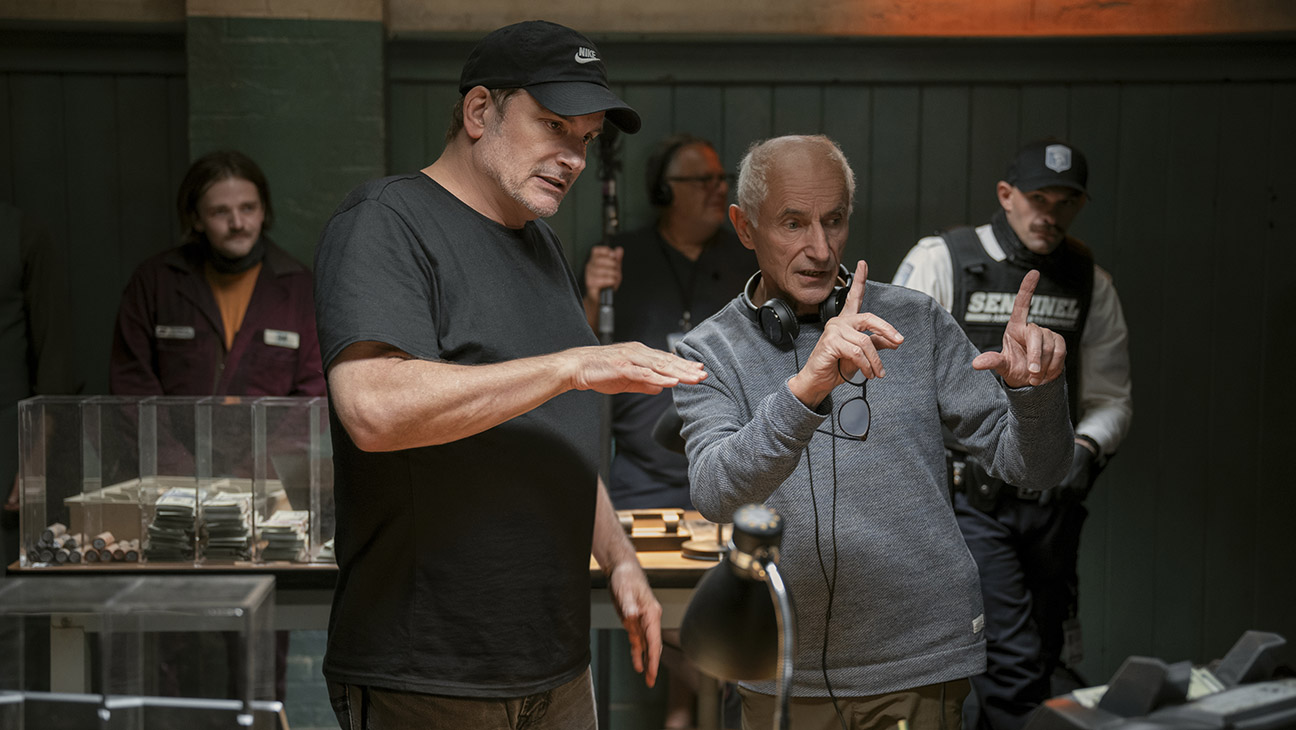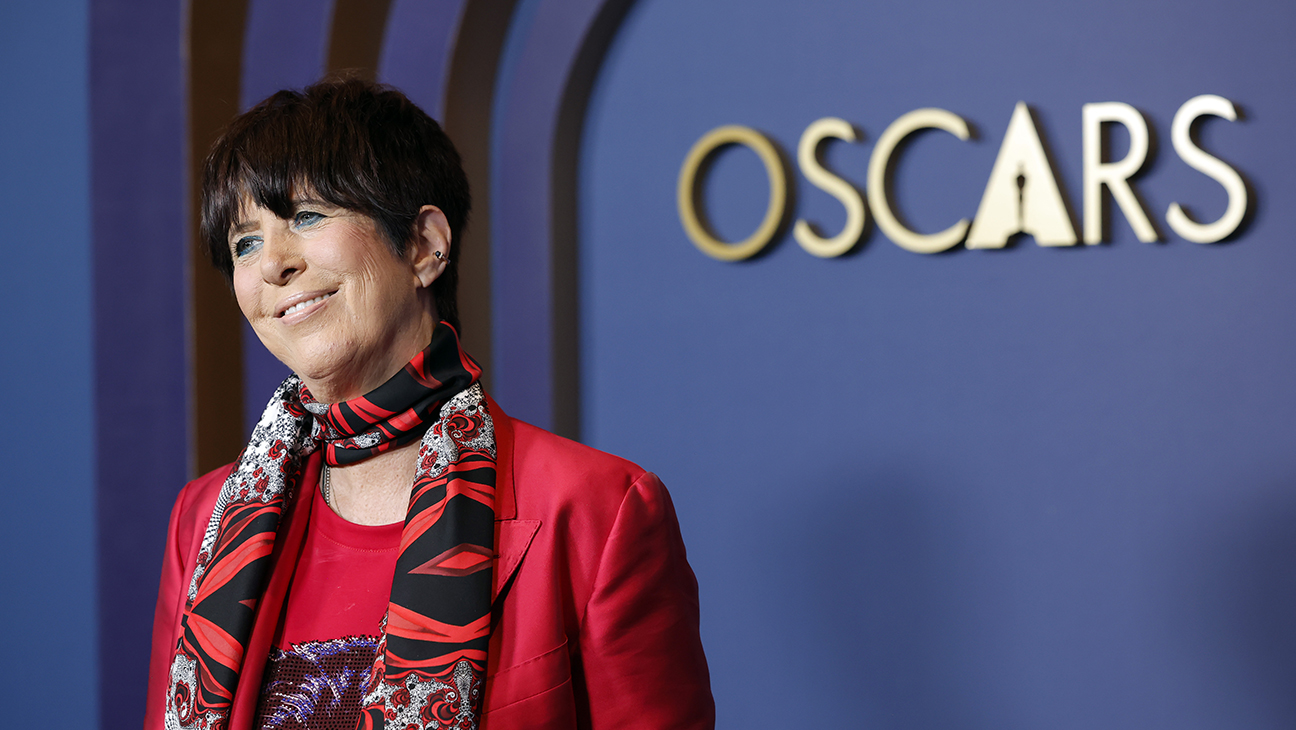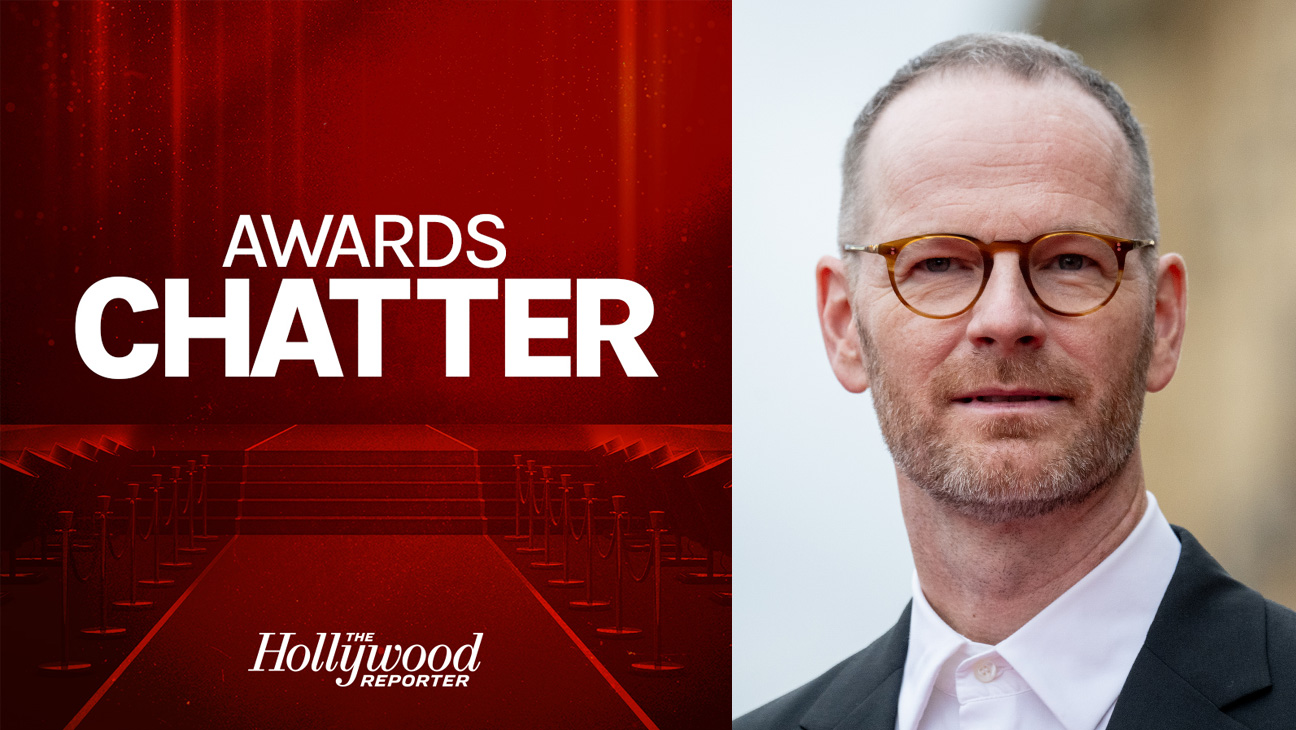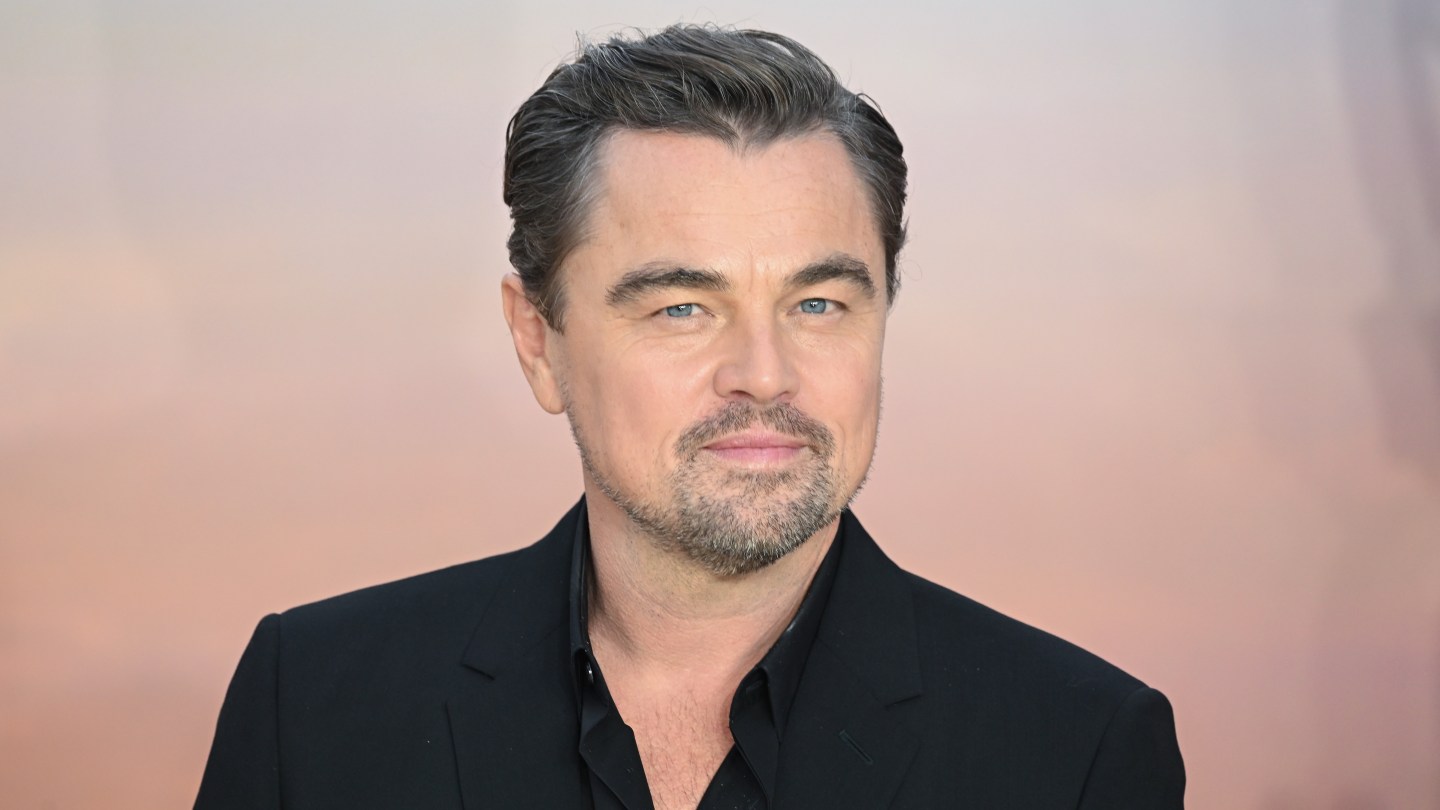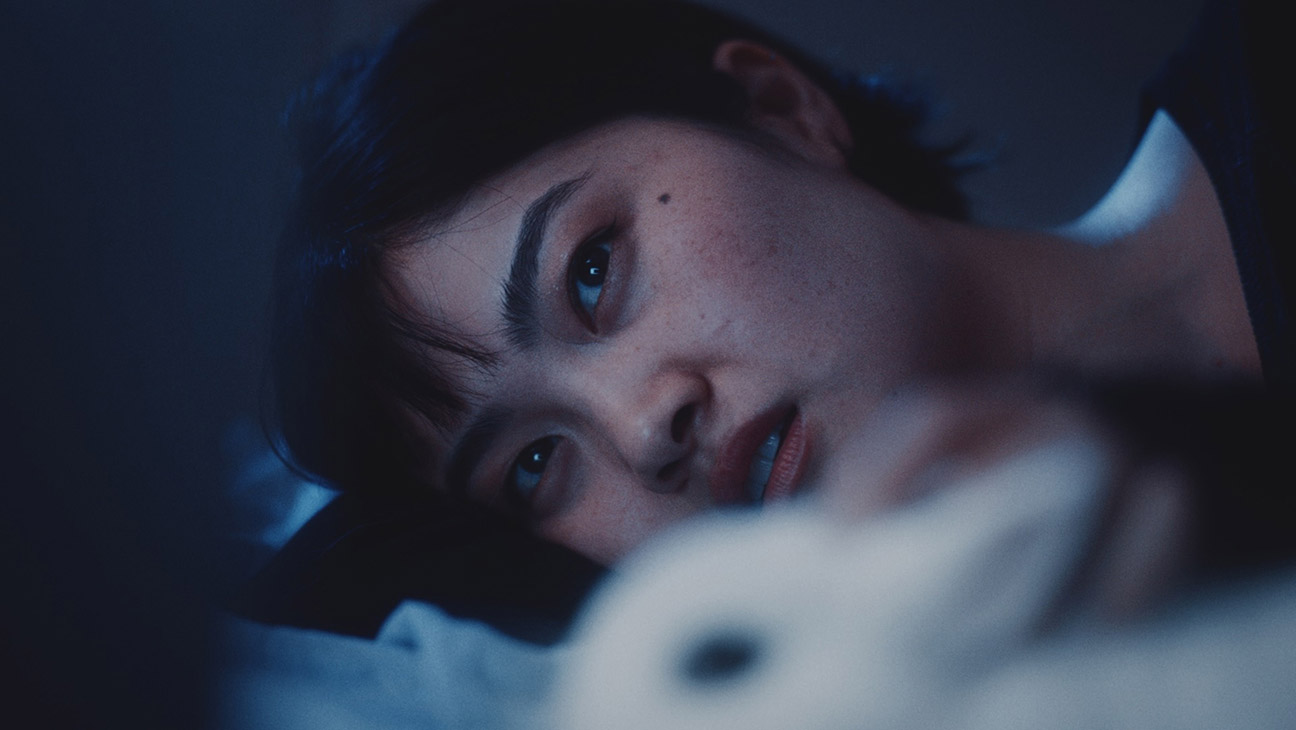Shane Black takes nothing for granted after four decades of moviemaking. The Pittsburgh native may have been the wunderkind screenwriter of the ‘80s and the filmmaker who helped revive Robert Downey Jr.’s career with Kiss Kiss Bang Bang en route to Iron Man, but he still treats every at-bat like it’s his last.
Black has just returned to screens this week with the Mark Wahlberg-led, Play Dirty. The Amazon Prime Video action-thriller is based on Donald E. Westlake’s (via his pseudonym Richard Stark) “Parker” novels, and Wahlberg is the latest notable actor to fill the shoes of the hard-boiled master thief, joining the likes of Lee Marvin, Jim Brown, Robert Duvall, Mel Gibson and Jason Statham.
“There’s a lot of young guys out there. There’s a lot of hot shots who you’d think would be doing Play Dirty. And the fact that I still get to bring something to the party, I’m eternally grateful for that,” Black tells The Hollywood Reporter. “So it’s up to me now, as a pact with the audience, to try to keep delivering something interesting and new. I’ve got to earn my seat.”
The title of Play Dirty is one that’s been in Black’s back pocket since the late ‘80s. After the success of his feature screenwriting debut, Lethal Weapon (1987), he wrote a much darker sequel script that was ultimately rejected by the powers that be. The title of that discarded work was none other than Play Dirty, and like the majority of his screenplay, it fell by the wayside until now.
“When we were trying to do Westlake’s character Parker again, we needed a title, and I had a producer with me who owned the title PlayDirty. I like repurposing things, I like pulling strings, and I like having a continuity that forms a shape,” Black shares.
Black recognized that every generation has a Parker movie starring one of the aforementioned actors, and so he decided to create a take for this generation, which meant putting modern technology in the hands of the master criminal who originated in the ‘60s. That said, Black still opted for a minimalist approach to today’s tech, as opposed to the high-tech gadgets of James Bond and Ethan Hunt.
“You will not see a single frame in Play Dirty where someone is Tom-Cruising it, descending on wires in a black outfit with laser-vision goggles. That’s technology that we didn’t want for Parker,” Black says. “He’s a psychological guy, a plodder. He gets things done in a very methodical, measured way, and he’s just relentless and dogged in a very old-school kind of way.”
In 1986, Black consulted on another script for his Lethal Weapon producer, Joel Silver, and that position ultimately led to his casting as Hawkins in John McTiernan’s Predator (1987). Black’s front row seat essentially anointed him as the first fan of the Predator franchise, and three decades later, he got the chance to helm his own installment, The Predator (2018). Unfortunately, the movie didn’t land critically or commercially, and while there was plenty of reporting in regard to studio overreach, Black has opted not to point fingers.
In any event, he’s thrilled that filmmaker Dan Trachtenberg has course-corrected the franchise with 2022’s Prey, June’s Predator: Killer of Killers and November’s Predator: Badlands. (The whispers around town surrounding the latter are very positive.)
“Dan Trachtenberg saved that franchise. His work is impeccable. I saw Prey, and all I could do was say, ‘Sir, my hat’s off,’” Black says. “[Prey] was a really great mythic take. I feel like an audience member now, and I’m just happy to see whatever he does. So, yeah, I’m happy that the franchise is still humming, and he’s the right shepherd for it.”
Below, during a recent conversation with THR, Black also discusses how the box office disappointment of his critically lauded The Nice Guys (2016) factors into his first streaming release with Play Dirty. Then he reveals which unproduced project of his he still hopes to relaunch someday.
***
The very first R-rated movie I saw as a young child was Lethal Weapon 2. I then saw the first one a short while after that. Well, apparently, the original title of your Lethal Weapon 2 script was Play Dirty before the assignment changed hands. Did you only repurpose the title here? Or is there more of your unused Lethal Weapon 2 material in Play Dirty?
No, just the title. When we were trying to do [Donald E.] Westlake’s character Parker again, we needed a title, and I had a producer with me who owned the title PlayDirty. I like repurposing things, I like pulling strings, and I like having a continuity that forms a shape. Yeah, it is what it is.
Admittedly, I didn’t realize the full extent of the Parker book series on the big screen. I’ve seen most of the films, but I never really made the connection because most of them weren’t allowed to use the Parker name until Jason Statham’s 2013 film, Parker.
That’s right.
How much or how little did those previous movies affect your choices here?
The glorious thing about the previous movies is that they were generational. Westlake [as Richard Stark], who created the Parker character, started in the ‘60s, and he continued writing the character all the way through to his death in 2008. So each generation seemed to have a Parker movie for them.
There was Lee Marvin’s Point Blank, and he was indelibly stamped in that 1967 production. There was a progression from Robert Duvall’s The Outfit in 1973 to Mel Gibson’s Payback in 1999. Each new movie that came out was slightly more modern, and so rather than go back in time and try to capture the vintage Parker, our job was to now do our version for this generation. That meant we had to find an actor who could embody yet another iteration for the modern age, and in this case, it’s Mark Wahlberg.
Now, when I say modern, I don’t mean in tone. I just mean that there were no cell phones back in the original Parker movies. You have to adjust to new technology. But I guarantee you will not see a single frame in Play Dirty where someone is Tom-Cruising it, descending on wires in a black outfit with laser-vision goggles. That’s technology that we didn’t want for Parker.
He’s a psychological guy, a plodder. He gets things done in a very methodical, measured way, and he’s just relentless and dogged in a very old-school kind of way. Even though he’s a horrible criminal in a lot of ways, we like to think he’s an American entrepreneur as well. He’s old-school in that he doesn’t cheat. He does the work and knows his craft and takes pride and has a code of conduct.
So the generations will change and the technology will slightly change for each new iteration of Parker, but we’re so happy to be able to do a modern version that still feels like it’s informed by all that old-school pulp stuff.
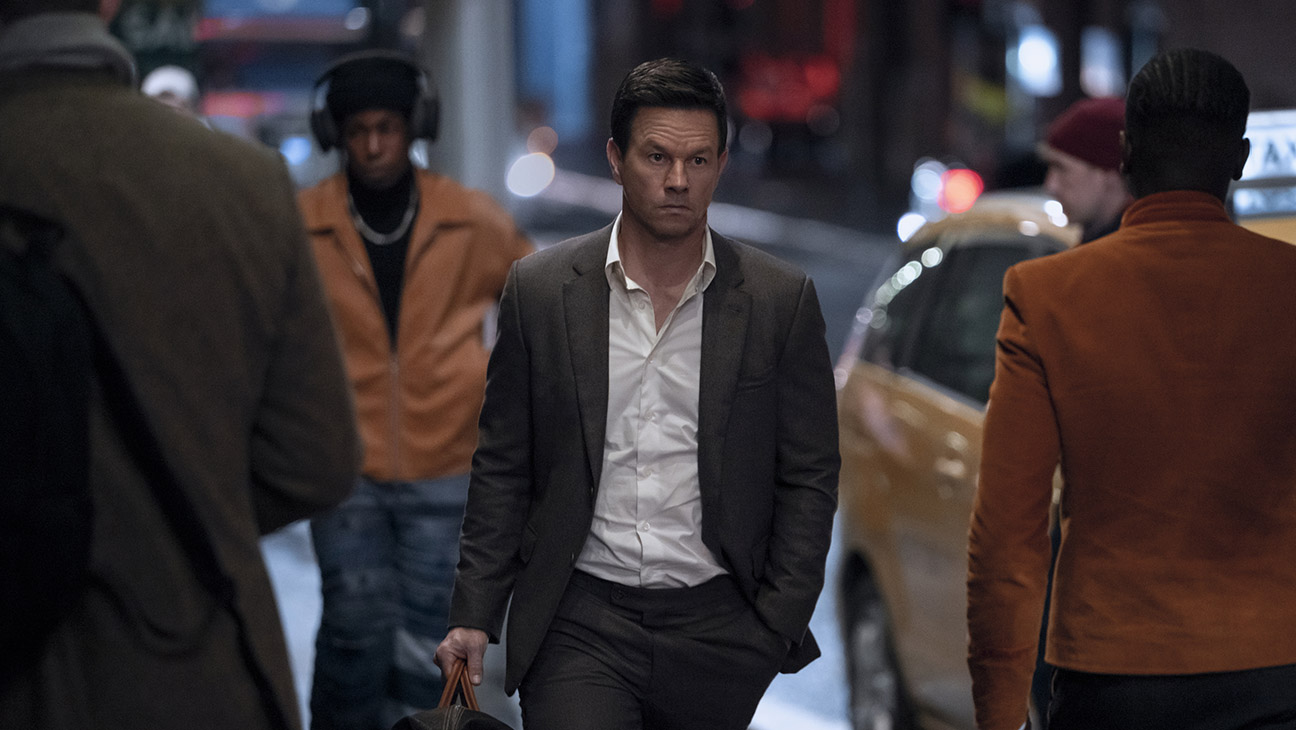
To woo Boston native Mark Wahlberg into accepting the role in a New York City-set film, did you highlight one of the pointed last lines of the film in order to seal the deal?
(Laughs.) No, we actually wrote that line after Mark had been cast. I think he was drawn to playing a criminal because he’s such a likable guy. Everyone just melts over him in the Ted movies; he’s funny as hell. So the idea of him playing someone who’s a little rougher and grittier and just completely relentless appealed to him. He also watched all the old Parker movies with Lee Marvin, Mel Gibson, Robert Duvall and Jason Statham, and he just loved the character.
I’m still despondent over the fact that we didn’t end up with a trilogy of Nice Guys films. Do you feel like you got to play with some of that tone and sensibility in Play Dirty?
First off, I hope we do get an opportunity to make another NiceGuys film. It’s questionable, because, the first one — although discovered afterwards and popular in a cult way — didn’t break records at the box office, to say the least. So we would love to do it, but in lieu of that, Westlake’s books were very famous for generally doing these comic capers [à la The Nice Guys]. In fact, I picked up one of his books as a kid, and the jacket described him as the “Mad Jester of the Mystery World.” His book, The Hot Rock, was one of the few books where I would laugh out loud reading it. So it’s a tip of the hat perhaps to the fact that Westlake had all these other characters that were the mirror side of Parker. They were a little more bumbling, a little more The Gang That Couldn’t Shoot Straight. But we never touched Parker’s unrelentingly edgy character. The Parker novels are very gritty, but there was always a rye humor to them.
I know we all cherish the communal experience, but after the box office heartbreak that was The Nice Guys, are you glad that Play Dirty won’t have you pacing back and forth all opening weekend?
Yeah, that’s one of the advantages of streaming. It’s tough because you work for two years on a movie that will open on a Friday, and by Friday afternoon, you know if it works or doesn’t work. Basing everything on that 12-hour timeframe where you know if it’s a hit or a miss, I prefer, in some ways, the streaming model. You’re relying on the critical response and you’re relying on people all over the world to watch it, but it’s a developing audience. It’s not, “Hey, you lose, or you win.”
And too often, if the first day of an opening weekend doesn’t do well, they go, “Ah, well, there’s a bomb.” People then see that and think, “Well, I guess the movie is a bomb, so I won’t see it.” Streaming offers a different opportunity that I’ve never done, so we’ll see. Apparently, it goes out to a hell of a lot of people, a lot of eyeballs. I just don’t know the model yet, and Play Dirty is the first time we’ve tried it.
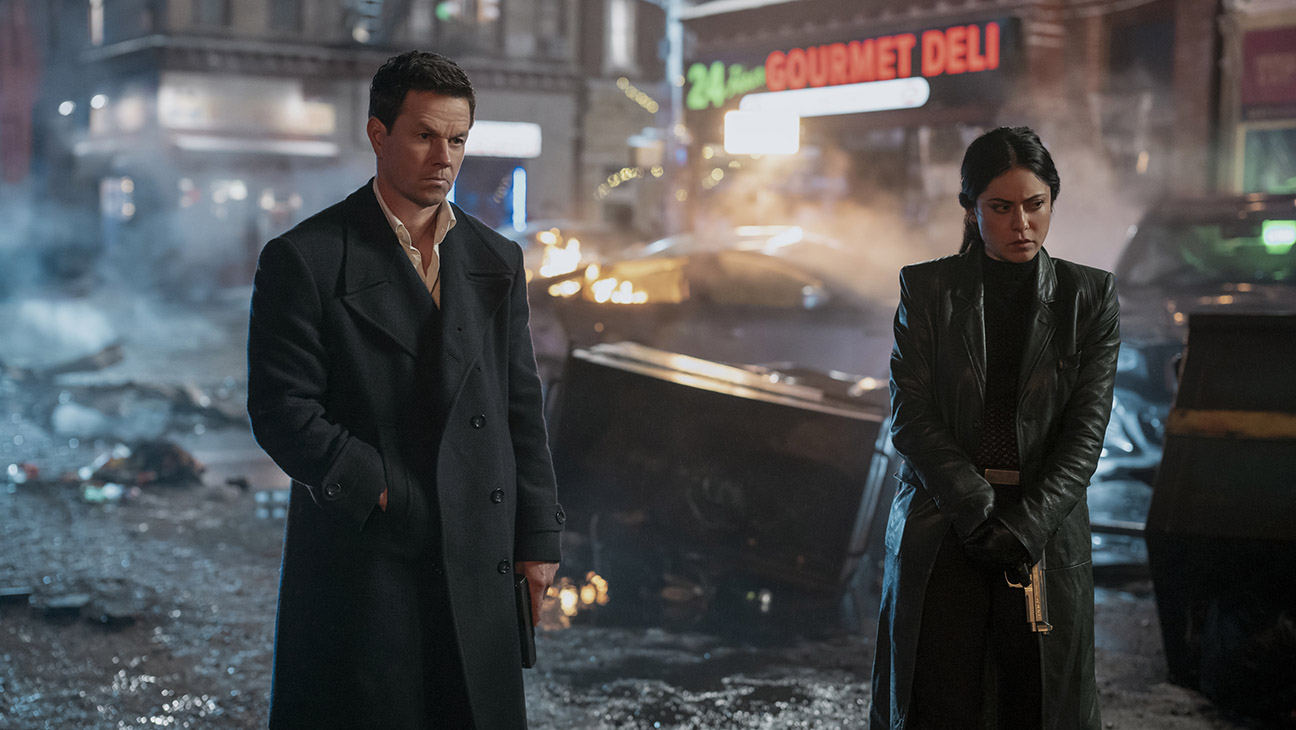
There’s an element of the ending that is rather shocking. I’ll just say that Parker honors his word. Do you think you would’ve been able to do that if Play Dirty was a theatrical release? Would the test reactions to that story point have created too big a hurdle?
It’s possible, although that behavior is so inevitably carved into the psyche of Parker. And when we had test screenings, people seemed to follow along with Parker’s logic. They seemed to say, “Okay, this guy has a code of conduct he lives by, and this is just a part of it.” So the test screenings actually weren’t suggesting that people were having a tremendous amount of difficulty with that [story point].
Team Downey produced Play Dirty. Robert also did a Q&A with you recently. 20 years ago, your film, Kiss Kiss Bang Bang, had a big hand in his storybook comeback and the launch of your directorial career. How often do you guys reflect on this turn of events? [Writer’s Note: Downey was once attached to the role of Parker, but his busy schedule became too much to overcome.]
I reflect on it all the time. Every time I see Robert, I shake his hand, and I have to stop myself from saying, “Hey, buddy, thanks.” He’s the one who was instrumental in me getting a chance to do Iron Man 3, and that opened a lot of doors. If I was able to help him in some small way, then I like to think that he’s more than lavished me with rewards that I can’t thank him enough for. He’s the magic man in movies that I work on. He catches lightning in a bottle; I don’t know how he does it. Some days he’ll show up with an idea that just elevates the material, and I’m happy to take credit for that. (Laughs.) He is one of the magic men.
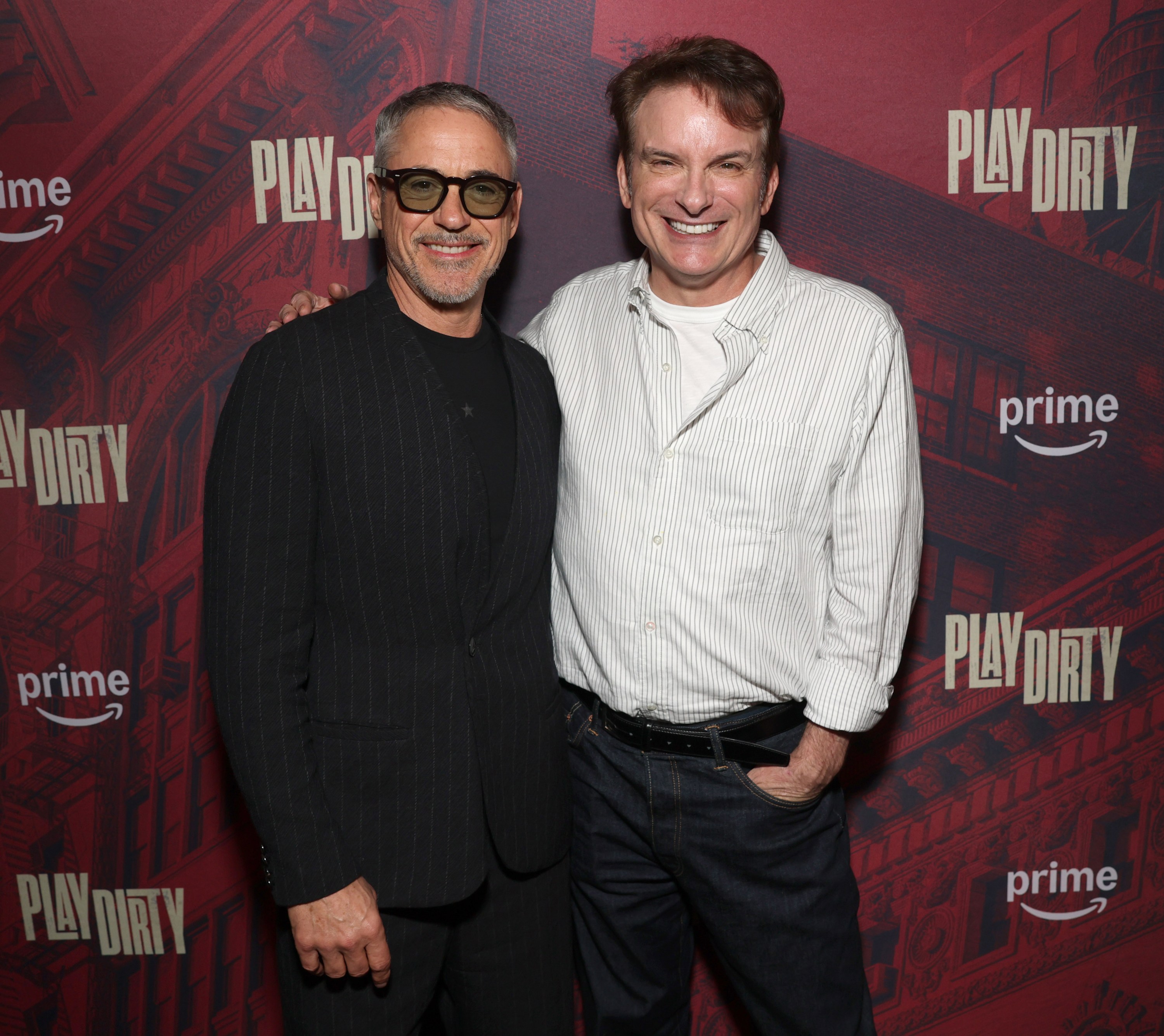
One of your Play Dirty producers, Marc Toberoff, produced Dan Trachentenberg’s Prey a few years ago, and when I last spoke to Dan, he was complimentary of your 2018 Predator film. Given that you were quite literally the first fan of the Predator franchise, are you glad that it seems to be humming right now?
Dan Trachtenberg saved that franchise. His work is impeccable. I saw Prey, and all I could do was say, “Sir, my hat’s off.” That was a really great mythic take. I feel like an audience member now, and I’m just happy to see whatever he does. So, yeah, I’m happy that the franchise is still humming, as you say, and he’s the right shepherd for it, at least for now.
We talked at the start about how you dusted off an old title of yours. Is there any other past work of yours that you might be interested in revisiting in some capacity?
I’ve always loved DocSavage. It’s based on ‘30s pulp, and he was the OG superhero. His name was Clark [Savage Jr.], and he was literally described as a “super man.” So the first DocSavage [in 1933] was before Clark Kent/Superman [in 1938]. He was the inspiration behind a generation of comic books and pulps and wonderful shit. So I would love, at some point, to revisit that. The problem is that the IP is not a household name. It’s much easier to fund something at that level of expense if it has Batman or Superman attached, as opposed to something that is going to be just as expensive and is less of a household name.
You once had Dwayne Johnson attached to that role, but he seems to have moved on from the superhero phase of his career, at least for the time being. Have you thought about who you would cast instead?
I don’t know. The problem is that it has to be someone that you can approach a studio with and say, “It’s going to be $150 million. Minimum.” DocSavage is about an entire world of adventure, and it’s a ‘30s period piece. I wouldn’t want to modernize it. So, yeah, I would look into finding a way to do that, but I still don’t have an actor in mind. It would have to be someone compelling enough to get the studio to loosen up those purse strings for us.
I know this franchise has been in your rear view mirror for a long time, but do you think the ship has sailed on Lethal Weapon 5?
I don’t know. You’d have to find a way in which seeing [Riggs and Murtaugh] much older would feel justifiably intrinsic, as though the 20-plus-year gap between 4 and 5 was planned from the beginning. So the trick is to make it of a piece so that you feel like the series has successfully rounded itself out. But I’m not going to write that. I’m sure there’s someone who will, and I wish them all the best. God bless it.
Last Action Hero is a beloved movie to my childhood self, and once I got old enough to dig into film lore, I was shocked to read how much handwringing there was over that movie. Do you hear this sentiment often from people who grew up with it?
Yeah, Last Action Hero came out the same year as Jurassic Park, and everyone was saying, “Ooh, which is going to be bigger?” Well, we flopped. (Laughs.) Once again, this is what’s weird about being in this cult world. You do a picture like the Monster Squad in 1987, and it flops. But then, 25 years later, 2000 people go to conventions to watch it. When Last Action Hero flopped, I thought, “Well, that one misfired. Let’s forget about it.” But then your generation now says, “Hey, we love that movie.”
So what is it? Why can’t I make money at the time? (Laughs.) But that’s okay, though. It’s not just about having midnight movies, but it’s about the fact that they linger. There’s a lot of more successful movies that have quickly been forgotten. I’m so happy to turn on the TV 20 years later and see that something has kept this alive. Even if it was initially not lucrative, somebody saw a lasting value. And to the extent that people keep coming back to these movies that I’ve even had something to do with, I am eternally grateful.
I am blessed to still be able to do what I do. My career started in the ‘80s. There’s a lot of young guys out there. There’s a lot of hot shots who you’d think would be doing Play Dirty. And the fact that I get to still do this and bring something to the party, I’m eternally grateful for that. So it’s up to me now, as a pact with the audience, to try to keep delivering something interesting and new. I’ve got to earn my seat.
The sporting contest mayhem at the beginning of Play Dirty reminded me of the sporting contest mayhem in The Last BoyScout. For all your Christmas exploits, Boy Scout is the only film of yours that was released at Christmastime. I know you didn’t direct it, but does it ruffle your feathers at all that it has the least amount of Christmas decor of all your Christmas-set movies?
No, it was not a hard-and-fast rule. I like to think that it was fun while it lasted. I love Christmas. I love what it brought to the movies and the way it informed and provided an arena in which we’re all in it together. But once people started noticing and said, “Oh, he’s doing a Christmas picture again,” you think, “Well, now we’re a one-trick pony. They’re noticing it, so we’ve got to stop that.”
With Play Dirty, I wanted to do winter in New York City, so it was like, “Oh boy, here we go again. We can set it in February, but you know what? Let’s just do Christmas again.” And I just love it. But I am okay with moving away from that, and I certainly don’t resent the extent to which one movie has less Christmas than another.
Between solo writing and co-writing, your career ratio, in terms of produced works, might be fifty-fifty. Do you mostly prefer to have a sounding board?
Solo writing is often more rewarding emotionally, and it challenges you to go deeper inside. You have to rely on this channel that you open between you and whatever. You hope the ideas show up because you’re not able to discuss them. It’s all in your mind. It’s all inside. It’s all internal. It’s infinitely rewarding if you get a good product out of it, but it’s painful as hell.
One of my mentors, James L. Brooks, used to say, “Writing is torture.” And let’s just be honest, it’s torture. But it’s kind of noble too. So if you’re going to be tortured by something, it might as well be writing because there’s a kind of nobility to seeking that end product. I love that.
But if you want to have fun writing, then get partners. I’ve known Anthony Bagarozzi and Chuck Mondry, the co-writers on Play Dirty, for 40 years. So we get together and drink iced tea and bicker, and we just have a blast. It’s reassuring. It’s like a Ouija board. You can’t play with it by yourself. You have to do it with others, and you always think, “Well, maybe someone else will take up the slack. Maybe they’re moving the board.” And with these guys, they’re just perfect partners.
Well, thanks for all the entertainment, Shane.
I am just so pleased that someone remembers it.
***
Play Dirty is now streaming on Amazon Prime Video.

